2016-2017 Fellows
 Jordan Cox
Jordan Cox
Majors: Creative Writing and Professional WritingProject: A Creative Proposal for the Exploration of Human Separation
Adviser: Gerald Costanzo
Learn more.
 Mary Catherine (Casey) Devine
Mary Catherine (Casey) Devine
Majors: Global Studies and French & Francophone StudiesProject: French Nationalism and Unity Associated with La Loi Toubon
Adviser: Mame-Fatou Niang
Learn more.
 Ariel Hoffmaier
Ariel Hoffmaier
Majors: Creative Writing and Ethics, History & Public PolicyMinor: Professional Writing
Project: A Trove of Connections: Reimagining LGBT Identity Through Multimedia Stories
Adviser: Sharon Dilworth
Learn more.
 Dhruva Krishna
Dhruva Krishna
Majors: Ethics, History & Public Policy and Professional WritingProject: Do DIY: A Documentary About the Pittsburgh Music Scene
Advisers: Tim Haggerty, Scott Sandage
Learn more.
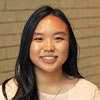 Kayla Lee
Kayla Lee
Majors: Global Studies and Hispanic StudiesMinor: Politics and Public Policy
Project: Understanding the Economic Self-Sufficiency of Adult Bhutanese-Nepali Refugees in Pittsburgh Through English Language Proficiency: Towards a Theory of Refugee Self-Sufficiency
Adviser: Kenya Dworkin y Méndez
Learn more.
 You Bin Maeng
You Bin Maeng
Major: PsychologyMinor: Cognitive Neuroscience
Project: Physical and Psychological Causal Inference in Adults
Adviser: David Rakison
Learn more.
 Sophia Makal
Sophia Makal
Major: PsychologyProject: Using Self-Affirmation to Increase Willingness to Give Social Support in Males
Adviser: Brooke Feeney
Learn more.
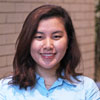 Karen Nguyen
Karen Nguyen
Majors: Professional Writing and PsychologyProject: Coming of Age as a Vietnamese American
Adviser: Jane McCafferty
Learn more.
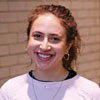 Naomi Sternstein
Naomi Sternstein
Majors: Creative Writing and Chemical EngineeringProject: Collected Fiction
Adviser: Kevin González
Learn more.
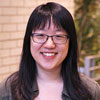 Delancey Wu
Delancey Wu
Majors: Psychology and Decision ScienceProject: Enjoyable Sacrifices: How Affectionate Touch Can Promote Intrinsically Motivated Sacrifices in Romantic Relationships
Adviser: Brooke Feeney
Learn more.
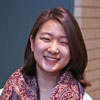 Diana Yuh
Diana Yuh
Major: Global StudiesProject: Flexible Citizenship and Politics of Belonging: Gendered Migration of Chosonjok Women
Adviser: Judith Schachter
Learn more.